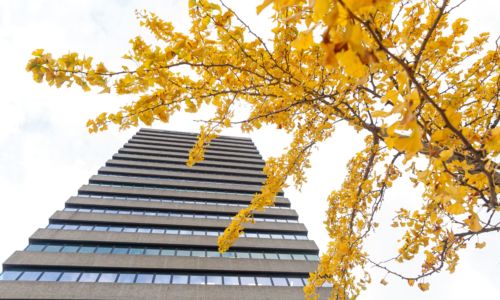The long journey of a complaint: how confidential advisors work
-
 Photo: Pixabay
Photo: Pixabay
Safety has been subject to close scrutiny at the Faculty of Philosophy, Theology and Religious Studies for the past few months. Professor Paul Bakker is temporarily banned from Campus, and staff and students are repeatedly reminded of the existence of confidential advisors by the Executive Board. Anyone who has experienced ‘something’ untoward can report to the confidential advisor. How does this kind of procedure work?
At the start of this academic year, Radboud University introduced a new complaints regulation aimed to make confidential advisors more easily findable and easier to access. The regulation is also intended to clarify what falls under undesirable behaviour. All of this should promote a sense of social safety among students and staff. But what does the procedure look like in practice?
Their own fault
Anyone at the University facing issues related to undesirable behaviour can contact a confidential advisor. Confidential advisors accompany those who make a report throughout the complaint process. They are there to address bullying and violence, inappropriate attention from a lecturer or colleague, and any other form of sexual or other intimidation. They are also the first point of contact for suspected violations of scientific integrity.
The confidential advisor primarily offers a listening ear and advice on how to deal with the situation. ‘We are primarily there to bounce ideas off, or make sure the person making a report gets their story straight and has tools for improving the situation,’ explains Heleen Kloosterhuis, coordinator of the new central team of confidential advisors.
She believes many problems can be solved at an early stage by a confidential advisor. ‘People sometimes think a situation is their own fault until they hear from us that the other person’s behaviour is really inappropriate,’ she explains.
‘If our advice is not enough, we advise the person making a report to talk to the other person.’ Since this can be difficult, the confidential advisor sometimes accompanies the person reporting the incident to offer support.
Official complaint
If the other person is not open to dialogue or refuses to change their behaviour, or if the behaviour clearly violates too many boundaries – as in the case of sexual intimidation – the confidential advisor does more than simply listen. ‘In such situations we help to stop the inappropriate behaviour,’ says Kloosterhuis. ‘For example by informing the person’s supervisor or by advising the staff member or student to file a complaint.’
The latter incidentally doesn’t happen very often. In 2019, for example, a total of 87 interviews were booked with confidential advisors, of which more than half were related to inappropriate behaviour. In the same year, not a single complaint for inappropriate behaviour was filed. Nor was an official complaint filed against Paul Bakker, the Philosophy Professor who was accused of ‘misconduct’ in September. In this case, the Executive Board initiated its own investigation after getting signals that things were getting out of hand.
‘Filing a complaint is quite an intensive procedure’
‘Filing a complaint is quite an intensive procedure,’ explains Kloosterhuis. It starts with someone writing a letter to the Executive Board to explain what the complaint is about. Kloosterhuis: ‘You quite literally have to say: there and then, this person behaved in an inappropriate way towards me. Preferably with names of witnesses.’
The Board then forwards the complaint to the Complaints Committee. This committee, which consists of three independent members, assesses whether the complaint is admissible. In other words: can and may it be taken into consideration? Within ten days, the complainant is informed of whether there will be an investigation.
If the answer is ‘yes’, the Complaints Committee has eight weeks to carry out an investigation. The case is examined carefully, and evidence can be submitted for consideration.
Evidence
To validate a complaint a complainant must submit evidence. Bullying may be easier to prove with emails or witness reports, but this is more difficult in the case of sexual and other intimidation. After all how can you prove that your boss is making sexually-tinted remarks when your colleagues are not around, or that a fellow student is touching you in inappropriate ways? Still, there are more possibilities than you may think, says Kloosterhuis. ‘Friends with whom you’ve discussed your experience can all act as witnesses.’
And yet, it remains difficult. In cases of sexual and other intimidation, shame is often a factor and victims tend to avoid talking about their experience with family and friends.
At the moment a follow-up investigation is being carried out into undesirable behaviour at the Faculty of Philosophy, Theology and Religious Studies. The Executive Board has called on Berenschot consultancy agency to deal with the case. Faculty students and staff members received an email informing them that they can report directly to the consultancy agency.
‘By calling on an independent agency the University is trying to gather as much information as possible for their investigation,’ explains Inge Bleijenbergh. As a member of the Works Council she was involved in the new policy surrounding the complaints procedure. In addition, as an Associate Professors she specialises in scientific research on gender and diversity.
Aren’t the University confidential advisors being side-lined when the Executive Board calls on students to report their experiences directly to Berenschot? After all, confidential advisors have an important supportive role to play in such sensitive cases. ‘It’s quite striking that people are asked to report to the consultancy agency instead of the confidential advisor,’ admits Bleijenbergh. ‘Perhaps the people making a report were unwilling to file a formal complaint, and the Board needs to have information about what happened.’ In hindsight, students and staff may be willing to file a complaint after all, and the University is reminding them of this option by sending out an email.
University spokesman Martijn Gerritsen emphasises when asked that staff and students can always contact a confidential advisor. The message sent out to students and staff mentions Berenschot, he emails. ‘In case someone wants to share information with the investigators concerning inappropriate behaviour, social safety, and times when social safety is violated.’
Return
In the end, every formal complaint is concluded with a decision issued by the Executive Board within two weeks of the start of the investigation. If the Board investigates potential ‘misconduct’ without a formal complaint, it also concludes the investigation with a decision on measures to be taken. In the case involving Paul Bakker, it was decided that he would be banned from the Faculty for six months.
The formal aspect of the case may be concluded for now, but in practice it continues to simmer. To what extent will social safety be guaranteed when Professor Bakker returns after six months? Wilma de Koning, Vice President of Radboud University, said in an earlier interview with Vox that Bakker had to work to regain trust, but how can he do so if no one knows what he’s guilty of?
‘Students and staff members should at the very least know whether students were involved in the case’
‘That is very difficult,’ admits Bleijenbergh.’The only way for things to come right is to have some kind of transparency.’ The feeling of social safety can be improved by openly talking about it. ‘The Faculty’s students and staff should at the very least know whether the case only involved staff members or also students,’ she adds. ‘This knowledge may help bring a sense of calm for students.’
But Bleijenbergh is not criticising the Executive Board: ‘The University administrators have performed an incredible balancing act in being open while protecting those involved, but they now have to press ahead and be more transparent about what people can expect in terms of possibilities for dialogue. Now the story’s out, there’s no way back.’
The journey of a complaint in short:
- One or more talks with a confidential advisor. (Note: A talk need not lead to a complaint; confidential advisors are simply the first person to contact in case of problems.)
- A talk with the person bothering you and/or a report to your supervisor.
- Filing a complaint: Write a letter describing the complaint, and you can expect a response from the Complaints Committee within ten days. They will decide whether the complaint can be taken into consideration.
- The investigation is completed within eight weeks, and the Complaints Committee issues a recommendation to the Executive Board on how to handle the case.
- Within two weeks, the Executive Board reaches a decision regarding the handling of the case.


